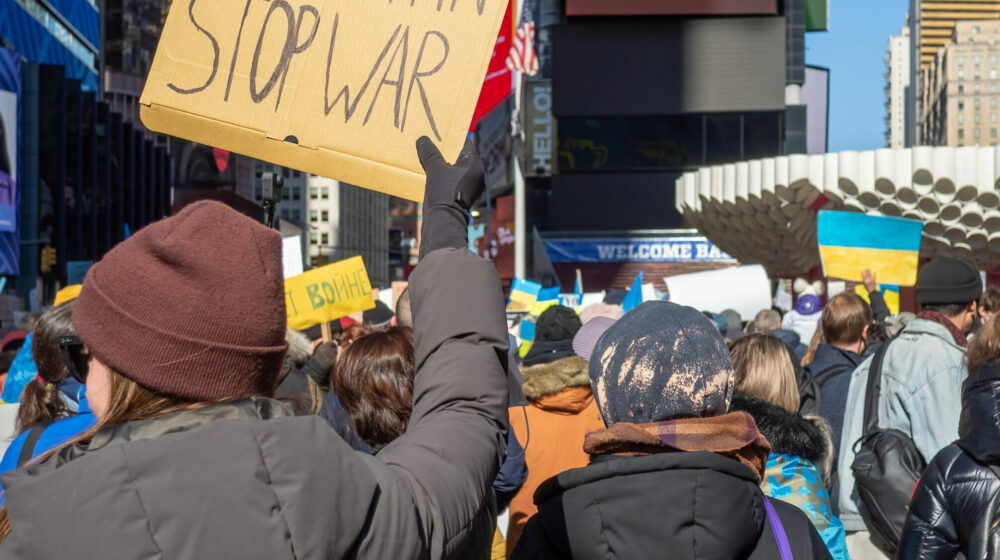Statement on the War in Ukraine

We are deeply saddened by the Russian attack on Ukraine. Our thoughts are with the people who live there, with our employees who have family and friends there, and with the colleagues at our partner organizations in Ukraine. We share and support the Statement on the War in Ukraine by Scholars of Genocide, Nazism and World War II”.
»We strongly reject the Russian government’s cynical abuse of the term genocide, the memory of World War II and the Holocaust, and the equation of the Ukrainian state with the Nazi regime to justify its unprovoked aggression.«
Statement on the War in Ukraine by Scholars of Genocide, Nazism and World War II (excerpt)
Statement by Scholars of Genocide, Nazism and World War II
Since February 24, 2022, the armed forces of the Russian Federation have been engaged in an unprovoked military aggression against Ukraine. The attack is a continuation of Russia’s annexation of the Crimean peninsula in 2014 and its heavy involvement in the armed conflict in the Donbas region.
The Russian attack came in the wake of accusations by the Russian president Vladimir Putin of crimes against humanity and genocide, allegedly committed by the Ukrainian government in the Donbas. Russian propaganda regularly presents the elected leaders of Ukraine as Nazis and fascists oppressing the local ethnic Russian population, which it claims needs to be liberated. President Putin stated that one of the goals of his “special military operation” against Ukraine is the “denazification” of the country.
We are scholars of genocide, the Holocaust, and World War II. We spend our careers studying fascism and Nazism, and commemorating their victims. Many of us are actively engaged in combating contemporary heirs to these evil regimes and those who attempt to deny or cast a veil over their crimes.
We strongly reject the Russian government’s cynical abuse of the term genocide, the memory of World War II and the Holocaust, and the equation of the Ukrainian state with the Nazi regime to justify its unprovoked aggression. This rhetoric is factually wrong, morally repugnant and deeply offensive to the memory of millions of victims of Nazism and those who courageously fought against it, including Russian and Ukrainian soldiers of the Red Army.
We do not idealize the Ukrainian state and society. Like any other country, it has right-wing extremists and violent xenophobic groups. Ukraine also ought to better confront the darker chapters of its painful and complicated history. Yet none of this justifies the Russian aggression and the gross mischaracterization of Ukraine. At this fateful moment we stand united with free, independent and democratic Ukraine and strongly reject the Russian government’s misuse of the history of World War II to justify its own violence.
(This statement was originally published by the Jewish Journal)
If you are a scholar and would like to add your signature to the list, please send an email to efinkel4@jhu.edu.

